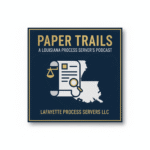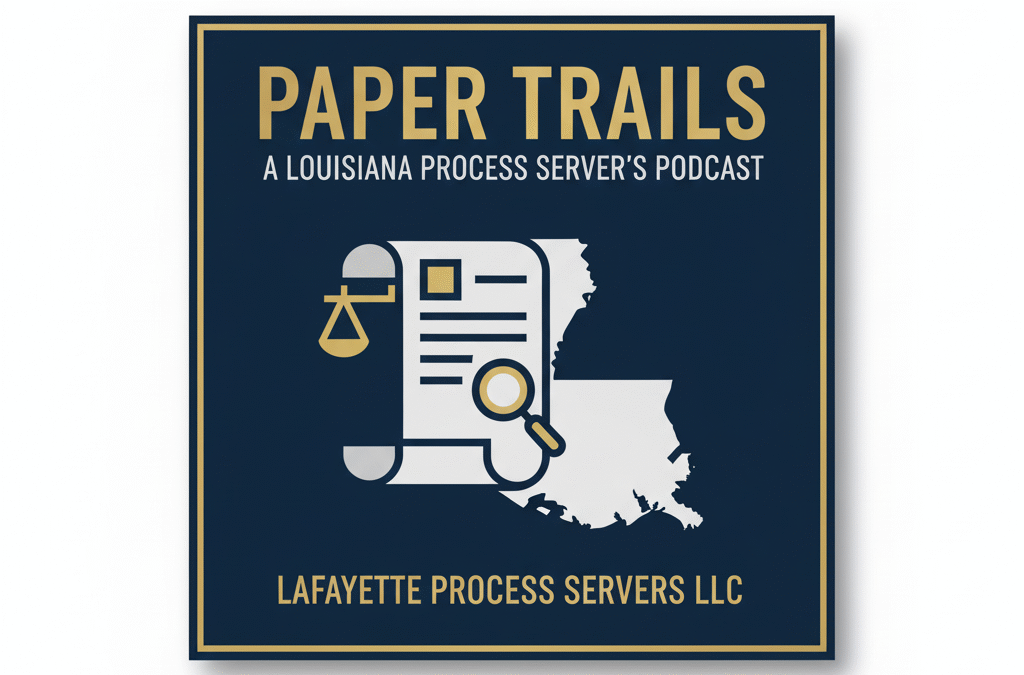
Serving the Evasive Defendant in Louisiana: Tactics of a Professional Process Server
Welcome to the first post in our new series, The Difficult Serve. There are few things more frustrating in a legal case than knowing exactly where a defendant is but being completely unable to get the papers in their hands. They don’t answer the door, they screen their calls, and they have family members cover for them. You’re dealing with an evasive defendant.
As of Monday, September 29, 2025, successfully serving someone who is actively trying to avoid service requires more than just persistence; it requires legal and ethical strategy. This guide will reveal the professional tactics we use to get the job done when a defendant won’t cooperate.
Identifying the Evasive Defendant: The Telltale Signs
The first step is recognizing the behavior. You might be dealing with an evasive individual if:
- They refuse to answer the door, even when lights are on or cars are in the driveway.
- Family members or roommates consistently say the person is “not home.”
- They suddenly change their daily routine.
- They stop answering phone calls from unknown numbers.
When you see these signs, it’s time to move from standard attempts to strategic service.
The Professional’s Toolkit: Legal Tactics for Success 🕵️♂️
An experienced process server has a toolkit of legal and ethical methods to handle evasive individuals.
1. Patience and Observation (The “Stakeout”)
This isn’t like what you see in the movies. A professional stakeout involves discreetly observing a property at a distance to learn the defendant’s routine. What time do they leave for work? When do they take out the trash or walk the dog? Learning these patterns allows the server to time their next approach perfectly for when the person is most likely to be accessible.
2. The Element of Surprise 🚗
An evasive person is on high alert at predictable times. The best way to overcome this is to be unpredictable. A professional process server will attempt service at various times, including:
- Early Mornings: Before the person has left for work.
- Late Evenings: After they have settled in for the night.
- Weekends: When their guard might be down.
3. The Workplace Serve
When a defendant is avoiding service at home, their workplace is often the most reliable location to find them. A professional server will conduct a workplace serve with the utmost discretion and professionalism to avoid causing a scene, simply identifying the person and delivering the documents quietly.
4. Advanced Skip Tracing
If a person has truly disappeared or is using an alternate address, skip tracing is the ultimate tool. We use professional-grade databases to find new, confirmed addresses, turning a dead-end search into a successful serve.
What We CAN’T Do: The Ethical Boundaries ⚖️
It’s just as important to know what a professional process server cannot do. At Lafayette Process Servers LLC, we operate under strict ethical guidelines. We will never:
- Impersonate a police officer or government agent.
- Trespass by entering a locked gate, garage, or home without permission.
- Use threats or intimidation.
- Open mailboxes or access private property improperly.
Why Experience Matters: The Lafayette Process Servers LLC Approach
Serving an evasive defendant is an art that requires experience. The team at Lafayette Process Servers LLC is trained to handle these challenging situations. We combine patience, strategy, and powerful tools like skip tracing to ensure a high success rate on even the most difficult serves. We operate ethically and professionally, knowing we are representing you and your firm.
Don’t let an evasive defendant control your case’s timeline.
Contact us today to handle your most difficult serves with the expert strategy they require.
⚠️ Disclaimer
This blog post provides general information on process serving tactics and is not legal advice. The methods used in any specific case must comply with Louisiana law. Consult with a qualified attorney for advice regarding your legal situation.
📚 Sources & Further Reading
- Louisiana Code of Civil Procedure, Art. 1231, et seq.: The official state laws governing how service of process must be made. Link to Louisiana Legislature
- National Association of Professional Process Servers (NAPPS): Provides a code of ethics for the profession. Link to NAPPS
- Lafayette Process Servers LLC: Your expert for handling difficult and evasive serves. Link to Lafayette Process Servers LLC
- How to Legally Deliver an Eviction Notice in Louisiana

